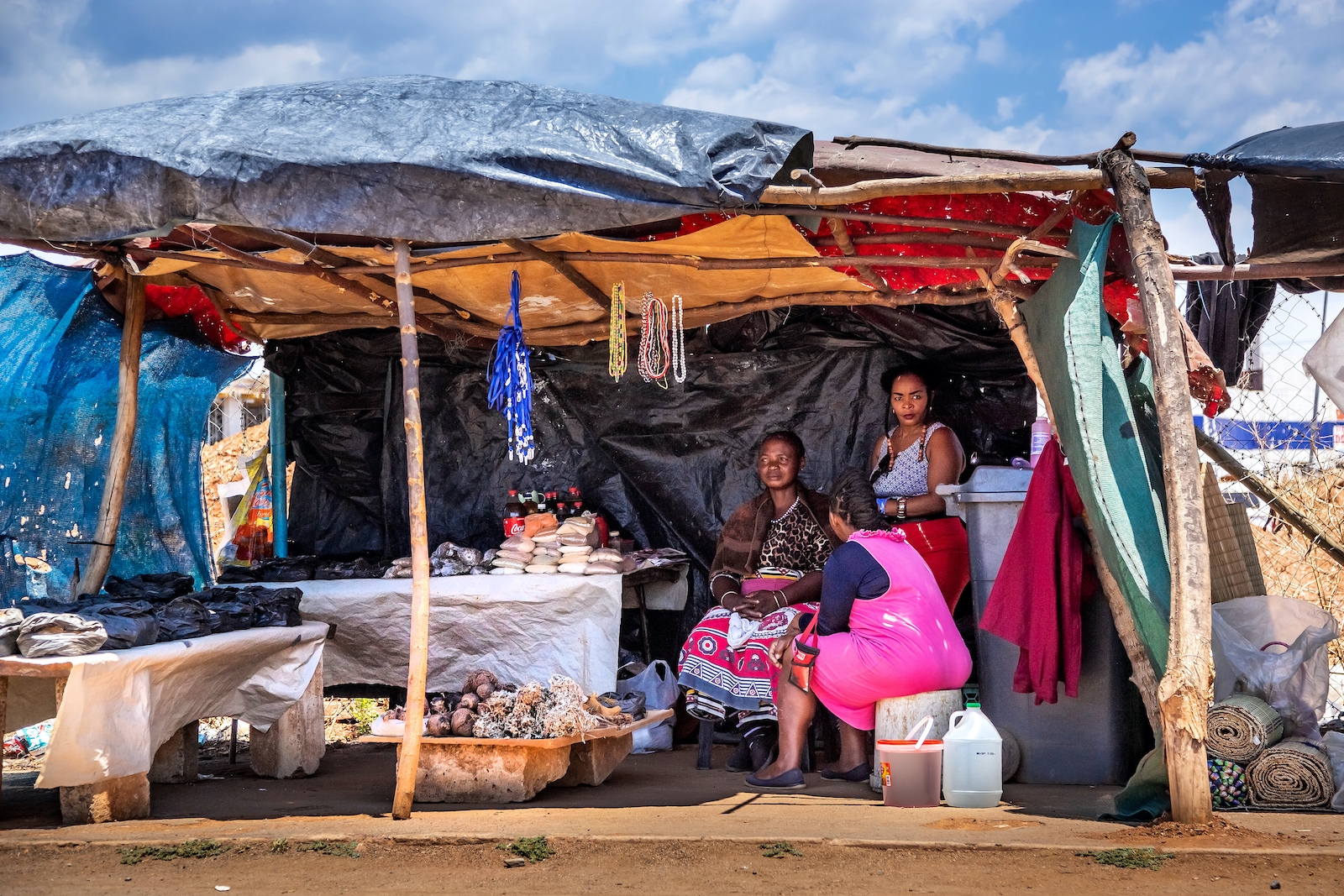
South Africa Waging War on Small Business
On January 24th, Stella Ndabeni Abraham, South Africa’s Minister of Small Business Development, proudly told the public, “We have a responsibility to enforce regulatory compliance in the SMME (Small Micro Medium Enterprises) sector and close businesses that are trading illegally.”
It should be noted that by “trading illegally” she doesn’t mean trading that violates the rights of anyone; she simply means trading outside the regulatory framework imposed on businesses—a framework that destroys many businesses, jobs, and livelihoods.
Trading “illegally” is similar to being “illegally employed” under apartheid laws that reserved certain jobs for the white minority. Businesses violating the law, by hiring non-white workers, were “employing illegally.” There is a world of difference between “illegal” acts, which harm others, and those helping others but are foolishly made illegal by a destructive zeal for regulation.
Jan de Villiers, the Shadow Minister of Small Business Development, rightfully said “[with] the unemployment rate at a record 46.6%, the last thing SMMEs need to hear is that the Minister of Small Business Development will be leading the witch hunt against business owners who don’t comply with government red tape.”
I do cringe a bit at calling such crusades witch-hunts because there are no such things as witches. But there is such a thing as job creation and that is what the minister of “small business development” is promising to stop. Instead of developing small businesses, enforcement of over-regulation destroys small businesses and jobs. The task before the minister should be one of actually creating jobs. One prime reason unemployment levels are so high is that the regulatory state stands in the way of job creation.
The World Bank, on the other hand, sings the praises of the role of small businesses in terms of economic development and job creation: “Small and Medium Enterprises (SMEs) play a major role in most economies, particularly in developing countries. SMEs account for the majority of businesses worldwide and are important contributors to job creation and global economic development. They represent about 90% of businesses and more than 50% of employment worldwide. Formal SMEs contribute up to 40% of national income (GDP) in emerging economies. These numbers are significantly higher when informal SMEs are included.”
The people who are employed in these companies are often those with the least “credentials” business-wise but what they lack in credentials they make up in determination. For many, the jobs they create for themselves are their only option. It is their means to escape utter poverty and worrying about bureaucratic paperwork is one of their least concerns. Many of them have no concept of the red tape and bureaucratic mazes that governments like to erect.
It is so much easier for a politician to deal with a large corporation, and for the career bureaucrat, deals with big business are often a lucrative option as well. They can finish their “public” career and find a cushy politically connected job with one of the corporations that they helped regulate. It was good for big business and it was good for politicians.
It just wasn’t good for the country or the unemployed.
Politicians and bureaucrats know who is most likely to offer them a hefty salary when they retire, and it isn’t the spaza in the township or the street vendor downtown. The corporations that can manoeuvre through the bureaucratic maze are filled with the privileged, the very people most likely to do well in any system. It’s the people who don’t understand the maze, or even fathom the idea there are ministers of government intent on waging war on small businesses, who need jobs the most.
These small informal businesses are often the only lifelines poor South Africans have for goods and services. So, a crackdown on “illegal” needed services doesn’t just increase poverty for those who feel the wrath of bureaucracy, it also harms the customer base they serve — who so many others intentionally ignore.
Often the people who fail to read the regulations are the very people who have the least education to begin with and who are the most desperate to find a way to economically survive. These are people who have been failed by the current and previous governments their entire lives. Instead of waging war on them, the minister would best serve the country by finding ways to help them survive, not close them down.
This doesn’t just mean having fee-free methods of legitimizing a business, but staff whose only job is to help these businesses comply with the requirements. But, it is also critical they start eradicating irrelevant requirements to make it easier to register. Even those aware of the roadblocks to success set up by the state often have no choice but to operate informally at least partially.
The International Finance Corporation urges the South African government to try “reducing bureaucratic complexity and the costs involved with registration will help to encourage formalization. In addition, providing hands-on assistance to small businesses registering would help them to navigate the process with more confidence and ease.”
To that, I say, “Amen.”
